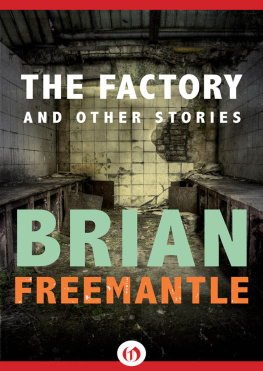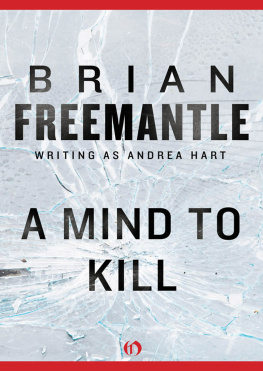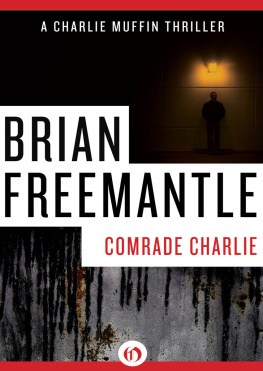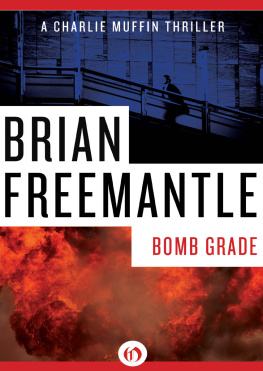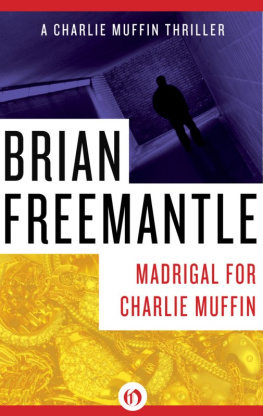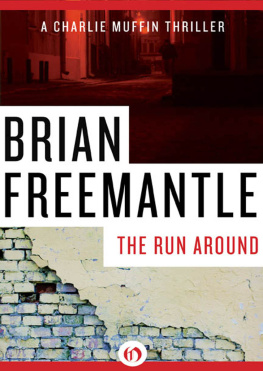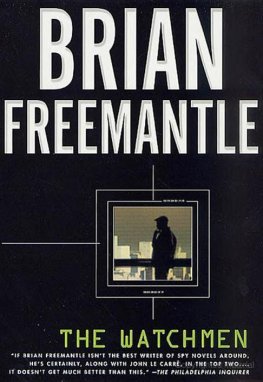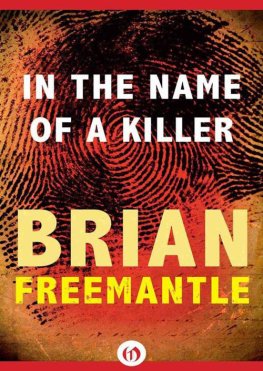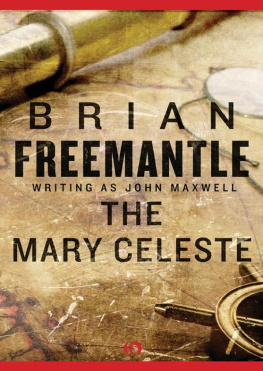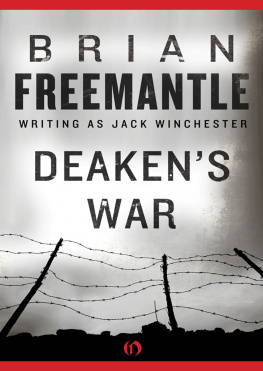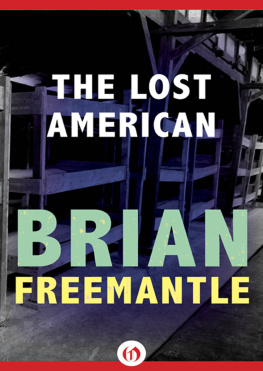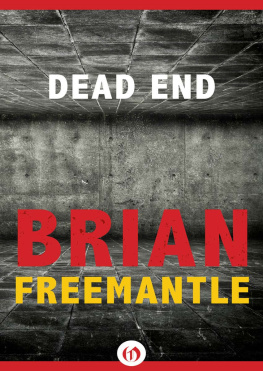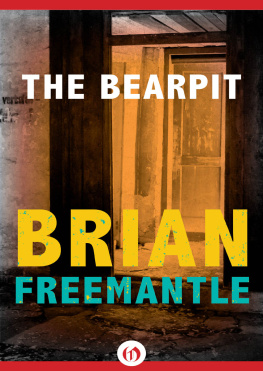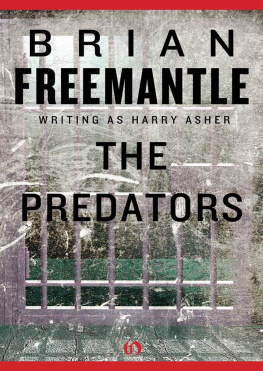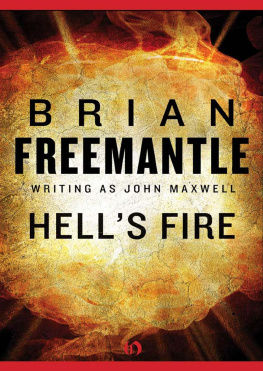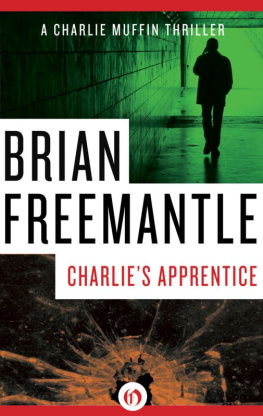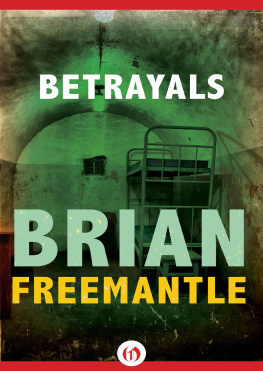Brian Freemantle - The Factory: And Other Stories
Here you can read online Brian Freemantle - The Factory: And Other Stories full text of the book (entire story) in english for free. Download pdf and epub, get meaning, cover and reviews about this ebook. year: 2011, publisher: Open Road, genre: Detective and thriller. Description of the work, (preface) as well as reviews are available. Best literature library LitArk.com created for fans of good reading and offers a wide selection of genres:
Romance novel
Science fiction
Adventure
Detective
Science
History
Home and family
Prose
Art
Politics
Computer
Non-fiction
Religion
Business
Children
Humor
Choose a favorite category and find really read worthwhile books. Enjoy immersion in the world of imagination, feel the emotions of the characters or learn something new for yourself, make an fascinating discovery.
- Book:The Factory: And Other Stories
- Author:
- Publisher:Open Road
- Genre:
- Year:2011
- Rating:4 / 5
- Favourites:Add to favourites
- Your mark:
- 80
- 1
- 2
- 3
- 4
- 5
The Factory: And Other Stories: summary, description and annotation
We offer to read an annotation, description, summary or preface (depends on what the author of the book "The Factory: And Other Stories" wrote himself). If you haven't found the necessary information about the book — write in the comments, we will try to find it.
The Factory: And Other Stories — read online for free the complete book (whole text) full work
Below is the text of the book, divided by pages. System saving the place of the last page read, allows you to conveniently read the book "The Factory: And Other Stories" online for free, without having to search again every time where you left off. Put a bookmark, and you can go to the page where you finished reading at any time.
Font size:
Interval:
Bookmark:

The Factory
And Other Stories
Brian Freemantle

The Traitor
Jack Harding, who was an experienced intelligence officer, decided that the pick-up was going very well indeed, just like all the others before it: this time tomorrow he would be back in London, another mission safely accomplished.
The dead-letter drop, the place where messages were left for his collection by spies within East Berlin, was just beyond the road bridge over the River Spee. It was an area, bordering the water, of old buildings, some of which even now remained shells gutted by wartime bombing. The drop was in a burned-out building, a blackened, hollow place without a roof: pigeons nested in its skeletal rafters and an occasional flower or stunted bush grew in the wall, roots clinging to the accumulated dirt and bird filth.
The entrance was inadequately closed off by two crossed pieces of wood, nailed into the supports of a long disappeared door. Harding went in quickly, pulling himself at once against the interior wall, waiting for several minutes, alert for a curious challenge from anyone who might have seen him enter the abandoned house. There was nothing.
The actual drop, the cavity he had to empty, was close to one of the fragile bushes. The brick that covered it slipped sideways as soon as Harding pushed it. The film roll lay in a small crevice.
Harding snatched it out, listened for the sound of any passer-by at the boarded-up door, and then thrust out when he heard nothing.
There was a small park, little more than a tiny grassed area, where the road joined the Friedrichstrasse. Harding chose an unoccupied bench seat and opened the camera bag hed brought with him into communist East Berlin to smuggle out the spy film he had just picked up. The bag contained a camera, an expandable tripod, two spare lenses and five film rolls. Two were already exposed with tourist shots of West Berlin. In seconds he switched the spy film for one of the unexposed films, in its plastic container. Then he stood, with the unused film concealed in the palm of his hand, went to a nearby litter basket and dropped it in, not on the very top where it would have been obvious but beneath a discarded newspaper.
He made his way slowly towards the crossing back into the West at what, before the breaching of the Berlin Wall, had been Checkpoint Charlie, remembering he still had a going-home gift to buy for his wife. Because everything had gone so well hed be back in West Berlin within half an hour. It left him plenty of time to look around the stores.
Although there were no longer the border checks there had once been, the tension, the real stomach-tightening, started as Harding came in sight of the Berlin Wall, now nothing more than a historic monument. He controlled it, as he had coming over that morning, joining the line of returning people wending through the intricate zig-zag of steel barriers.
The seizure came when he was exactly in the middle of the old checkpoint, too far in to be able to turn and run back into the East but not far enough to make a dash for the West.
Halt! came the shouted order.
Harding did, suddenly aware that following people had been held back, isolating him in the middle of a cleared area.
Me? he said in English, pushing outrage into his voice.
The man who was approaching from behind wore rimless spectacles and a tightly belted leather topcoat. He said: Lets not play games, Mr Harding. We know who you are and why you are here He extended his right hand, palm upwards. In it was the unexposed film roll Harding had discarded by the river. You left this behind, the man said.
No one could remember who had given the Factory its nickname. Certainly it was before Samuel Bell had been appointed Director General after his early retirement, with the rank of admiral, from the Royal Navy. It was unarguably an appropriate title because that was exactly what the place did look like, a square, red-brick, eight-storey, ugly building in the Mile End Road in East London, the sort of factory in which, long ago, children had been employed practically as slave labour to make gloves or shoes or trinkets-of-the-moment for the rich. From the name plates on the outside wall and the genuine activity on its ground floor it now seemed to be divided into dozens of small offices.
Its real use, as the headquarters of an operational division of British overseas intelligence, only became apparent on the first floor, beyond which it was impossible to travel in the one available lift. That lift opened to a wire-meshed, electronically monitored security area where officers had to be satisfied of everyone, even Bell himself, before permitting access to the second elevator and the floors above.
The Director Generals office was on the top, eighth floor, an expansive corner suite overlooking the Mile End Road in two directions. Bell was uninterested in the view, which was not a particularly attractive one at the best of times and certainly not that day. It was raining, the water scudding down from a heavily overcast sky. The weather, however, had little to do with Bells foul-tempered mood. Physically he felt awful, his head filled with pain, eyes squinted against what little light there was, the acid of the previous nights drinking burning the back of his throat. The hangover he could have endured, as he did most days. The real problem was the Berlin business: and more importantly, how he believed it to have happened.
Its been positively confirmed, said Jeremy Thurlow. The deputy Director General was a coldly unemotional man. He was extremely thin and tall and wore department store clothes which never fitted properly, hanging away from his body at the neck, with sleeves and trousers always too short. Thurlow added: The accusation is spying. The public prosecutor is demanding the maximum sentence.
Poor bastard, said Bell with feeling. The arrest of Jack Harding brought to four in the last six months the number of agents under his command who had been arrested on missions. Which was too many to be put down to bad luck or improved efficiency from the counter-intelligence services of the other side. His four lost officers had been targeted and there was only one source from which such identification could have come. From inside the Factory itself. Somewhere, Bell was convinced, there was a traitor.
They waited until Harding had the film on him, said Thurlow. Theres practically no defence to keep him out of prison.
So weve lost the plan of battle for the East German front-line troops that the film was supposed to contain, assessed Bell. Weve lost Harding, one of our best operators. Weve lost the dead-letter drop. And weve undoubtedly lost Gunther Schmidt, whos been our spy-in-place in the East German Defence Ministry for five years. Theyll have seen him fill the dead-letter drop if they were watching it, which they undoubtedly were.
A disaster, agreed Thurlow.
So what was he going to do? Bell asked himself. If he behaved with absolute and proper professionalism there was no choice. He had to call in internal security to conduct a sweeping investigation of his entire department. But was it possible for him to do that? The Director General knew how such investigations were conducted. No one, not even himself, would be above suspicion. Everybody would be probed to the bone, until there were no secrets left. Bell did not believe he could personally afford that. He couldnt risk discovery of the affair he guessed his out-of-love wife to be having, because that might be considered a security risk quite apart from the traitor hunt. He couldnt chance the uncovering of his own affair with Ann Perkins, his personal assistant. And he couldnt risk the disclosure of how much he needed the whisky in the bottom drawer of his desk, which carried him through until the whisky at night, either at home or at Anns apartment. To his deputy he said: So theres not a lot we can do for Harding?
Font size:
Interval:
Bookmark:
Similar books «The Factory: And Other Stories»
Look at similar books to The Factory: And Other Stories. We have selected literature similar in name and meaning in the hope of providing readers with more options to find new, interesting, not yet read works.
Discussion, reviews of the book The Factory: And Other Stories and just readers' own opinions. Leave your comments, write what you think about the work, its meaning or the main characters. Specify what exactly you liked and what you didn't like, and why you think so.

